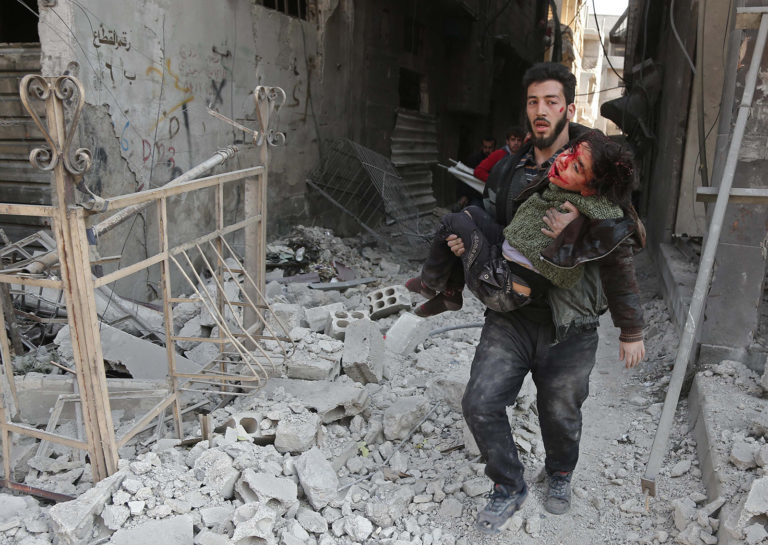Writing for the website of Salvage magazine, anthropologist Donya Alinejad and social scientist Saskia Baas call on Western leftists wishing to show solidarity with civilians and revolutionary forces in Syria to understand the full political complexity of the conflict and its history. There are multiple forces and factions battling against Assad, and they are themselves divided along ethnic, religious, and regional lines. Sometimes they unite to fight Assad, and sometimes they fight each other. Alinejad and Baas argue that reflexively backing one opposition force at the expense of others, without grasping the full context of the conflict, may “indirectly bolsters [Assad’s] authoritarian divide-and-conquer tactics.” Read an excerpt from the text below, or the full piece here.
As the tragedy in Afrin develops, North American and European leftist platforms have been disseminating calls by Kurdish armed groups for solidarity with victims of military violence in Syria’s northern district of Afrin. Such solidarity is much needed and deserved, but so is international solidarity with civilians elsewhere in Syria. Instead, the Western Left has largely remained silent in the face of the unimpeded massacre in Eastern Ghouta. The striking hypocrisy forces us to re-examine how our concept of international solidarity applies to the unarmed victims of this war…
Our internationalism must cultivate a willingness to grasp the complexity of Syrian polity, society, and culture as it unfolds in everyday life under the current circumstances of extraordinary duress. Rather than a lapse into apolitical humanitarianism, defending the lives of those brutalized by violence is based on an international solidarity that registers survival in this context as struggle. Similarly, our welcoming and hospitality to those who fled Syria in recent years must not smother them into politically pacified victimhood. We must seek out and listen to what a variety of Leftist Syrian political activists and intellectuals have to say about Syria. Their migration experiences and diasporic self-organization are part of the story of the Syrian revolution, an inexhaustibly rich resource for understanding and learning from the realities of this important contemporary struggle. It is a struggle that lives on in many of them and contains intimate knowledge of the notions of racial and ethnic discrimination, prison state, political disenfranchisement, and neoliberal policies we also fight against. The vast contextual differences make articulating the common ground all the more profound.
Image via Salvage.
